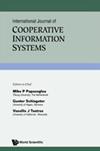合作促进社区参与的健康和福祉奖学金:土著自主研究人员发展的共同民族志研究
IF 0.5
4区 计算机科学
Q4 COMPUTER SCIENCE, INFORMATION SYSTEMS
International Journal of Cooperative Information Systems
Pub Date : 2016-06-01
DOI:10.5204/IJCIS.V9I2.136
引用次数: 3
摘要
在这篇文章中,我们提供了一个独特的视角,作为澳大利亚唯一的多学科土著研究网络的一部分,国家土著研究和知识网络(NIRAKN)。我们在实践和经验中使用协作式的自我民族志和反思。我们的目的是为了更好地理解和改进我们的研究网络和实践的功能,并为NIRAKN和类似网络的发展和可持续性提供一些方向。我们的叙述有力地表明,支持土著研究人员的主流模式在专业发展和文化安全方面存在重大限制,而且不符合我们的需求和现实。重要的信息是,我们需要适当资源的专属空间,必须在高等教育机构中领导、发展和定义土著研究人员支持模式的理论和文化规范和应用。该模式应该是跨学科的,具有国内和国际影响,具有连通性、文化安全和自决的特点,并位于资源丰富的环境中。本文章由计算机程序翻译,如有差异,请以英文原文为准。
Collaborating for community-engaged scholarship in health and wellbeing: A co-autoethnographic study of Indigenous self-determined researcher development
In this article, we provide an emic perspective of being uniquely positioned as part of Australia’s only multidisciplinary Indigenous research network, the National Indigenous Research and Knowledges Network (NIRAKN). We used collaborative autoethnography and reflection in our practices and experiences. Our purpose was to better understand and improve the functionality of our research network and practice, and to offer some direction for the growth and sustainability of NIRAKN and similar networks. Our narratives strongly demonstrate that mainstream models of support for Indigenous researchers have major limitations for professional development and cultural safety, and do not meet our needs and realities. The significant message is that we need appropriately resourced exclusive spaces and must lead, develop and define the theoretical and cultural specifications and applications of Indigenous researcher support models in higher education institutions. The model should be cross-disciplinary, have national and international reach and be characterised by connectedness, cultural safety and self-determination, and be located in a resource-rich environment.
求助全文
通过发布文献求助,成功后即可免费获取论文全文。
去求助
来源期刊

International Journal of Cooperative Information Systems
工程技术-计算机:信息系统
CiteScore
2.30
自引率
0.00%
发文量
8
审稿时长
>12 weeks
期刊介绍:
The paradigm for the next generation of information systems (ISs) will involve large numbers of ISs distributed over large, complex computer/communication networks. Such ISs will manage or have access to large amounts of information and computing services and will interoperate as required. These support individual or collaborative human work. Communication among component systems will be done using protocols that range from conventional ones to those based on distributed AI. We call such next generation ISs Cooperative Information Systems (CIS).
The International Journal of Cooperative Information Systems (IJCIS) addresses the intricacies of cooperative work in the framework of distributed interoperable information systems. It provides a forum for the presentation and dissemination of research covering all aspects of CIS design, requirements, functionality, implementation, deployment, and evolution.
 求助内容:
求助内容: 应助结果提醒方式:
应助结果提醒方式:


